Contact center of the Ukrainian Judiciary 044 207-35-46

The Supreme Court judges are aware that we must be leaders in all processes and changes that take place at the national level and in addressing the issues analysed by international institutions.
This was emphasised by President of the Supreme Court Stanislav Kravchenko during a roundtable discussion dedicated to the presentation of the CCJE Opinion No. 27 (2024) on the Disciplinary Liability of Judges and the OSCE Office for Democratic Institutions and Human Rights Recommendations on Judicial Independence and Accountability (Warsaw Recommendations).
The purpose of this event is to study in detail the provisions of the Opinion and Recommendations, to apply them in the future and to develop appropriate approaches in the practice of national courts that will meet the highest international standards.

These documents are of particular importance in the context of the European integration process, as ensuring an independent and effective judiciary is one of the key aspects of compliance with EU requirements.
The President of the Supreme Court also expressed his gratitude to the Council of Europe project “Support to the Functioning of Justice in the War and Post-War Context in Ukraine”, the OSCE Office for Democratic Institutions and Human Rights, and the OSCE Support Programme for Ukraine within the framework of the projects “Safeguarding Human Rights through Courts, Phase II” and “Assisting Supreme Court and Higher Courts in Implementing Judicial Reform and War-Related Justice” for their assistance in organising this roundtable.
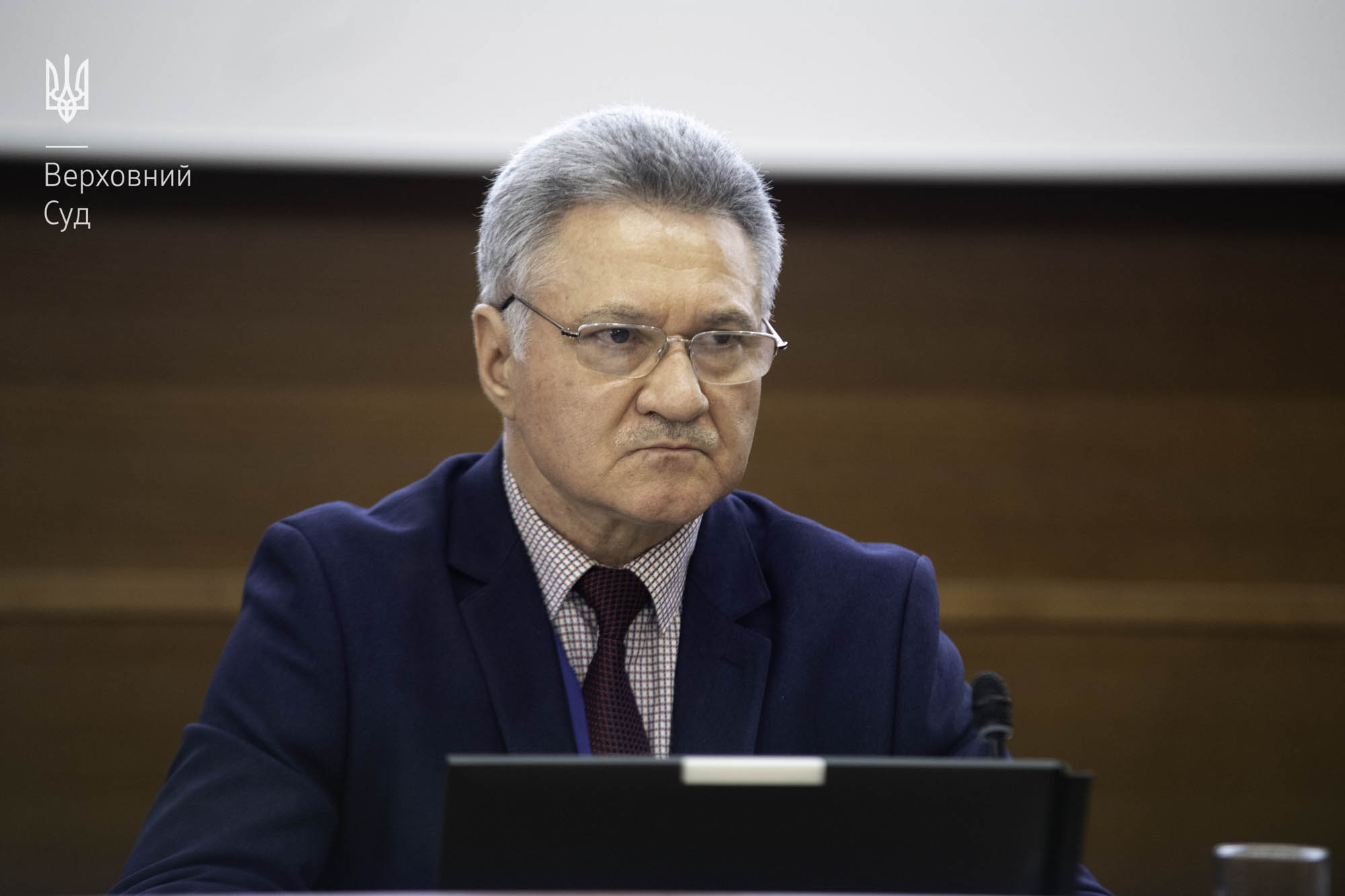
Hryhorii Usyk, Chairman of the High Council of Justice, in his welcoming speech, noted that the CCJE's conclusions have a positive impact on the reform of the judiciary, its approximation to European standards and eventually become an integral part of the functioning of the judicial system. According to him, both presented documents highlight topical issues, which, in particular, directly relate to the powers of the HCJ. In this regard, Hryhorii Usyk reminded that on 23 December 2024, the HCJ Disciplinary Inspectorate Service began to function. One of the main goals of its creation was to ensure open, effective and fair consideration of disciplinary proceedings against judges, which was one of the recommendations of the European Commission on the path to Ukraine's EU membership.

In his welcoming remarks to the roundtable participants and international partners, Denys Maslov, Chairman of the Verkhovna Rada Committee on Legal Policy, stressed that no strong state can exist without strong branches of government, including the judiciary. In order for the judiciary to be strong, its independence must be ensured, on the one hand, and, on the other hand, the procedures used by the judiciary in the administration of justice must be observed. Therefore, proper disciplinary procedures are the guarantor of the balance between the independence and accountability of the judiciary to society.
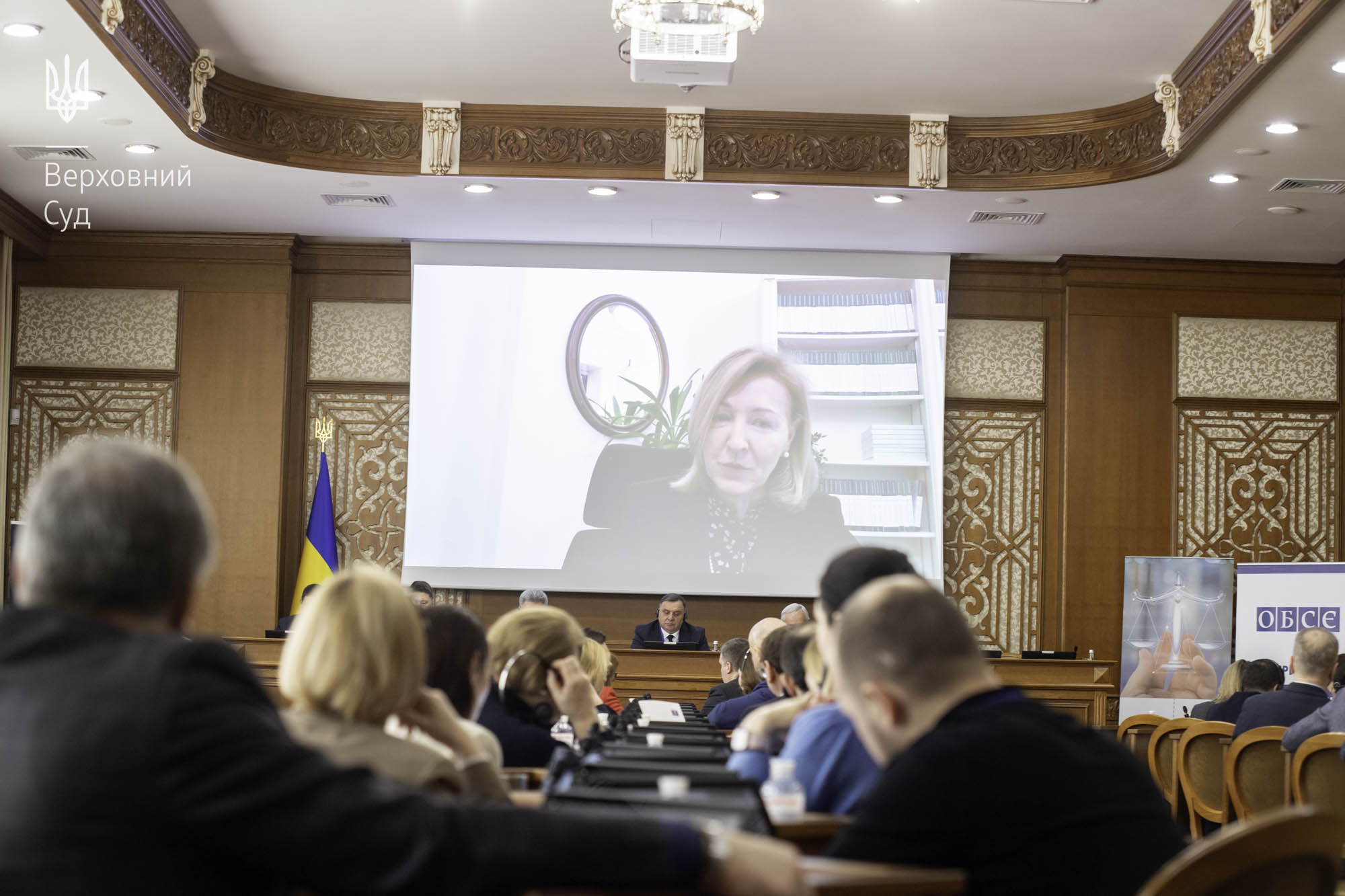
Leonie Reynolds, Judge of the High Court of Ireland, President of the Consultative Council of European Judges, thanked the President of the Supreme Court and representatives of the Ukrainian judiciary for the opportunity to present the CCJE Opinion on the disciplinary liability of judges and stressed that, as stated in the introduction to the Opinion, the responsibility of judges is closely linked to their independence. If judges' liability is not regulated clearly and properly, the independence of the judiciary is also at risk. ‘In Opinion 27, we emphasise that judicial accountability is a way for society to ensure that the judiciary performs its functions properly, thereby strengthening public confidence in the judiciary,’ said the CCJE President.

In his welcoming remarks, Artashes Melikyan, Head of the Secretariat of the Consultative Council of European Judges and the Secretariat of the Consultative Council of European Prosecutors, noted the important role of Ukraine in the activities of the CCJE, which always actively participates in the work of the organisation. He drew attention to the fact that Ukrainian judges actively apply the CCJE's conclusions in their decisions. At the same time, he noted that judges in our country work in extremely difficult conditions of war. Artashes Melikyan expressed solidarity with his Ukrainian colleagues on behalf of the organisation and thanked them for their work in extremely difficult war conditions. According to him, Ukraine is an example of how to apply the CCJE standards in practice.
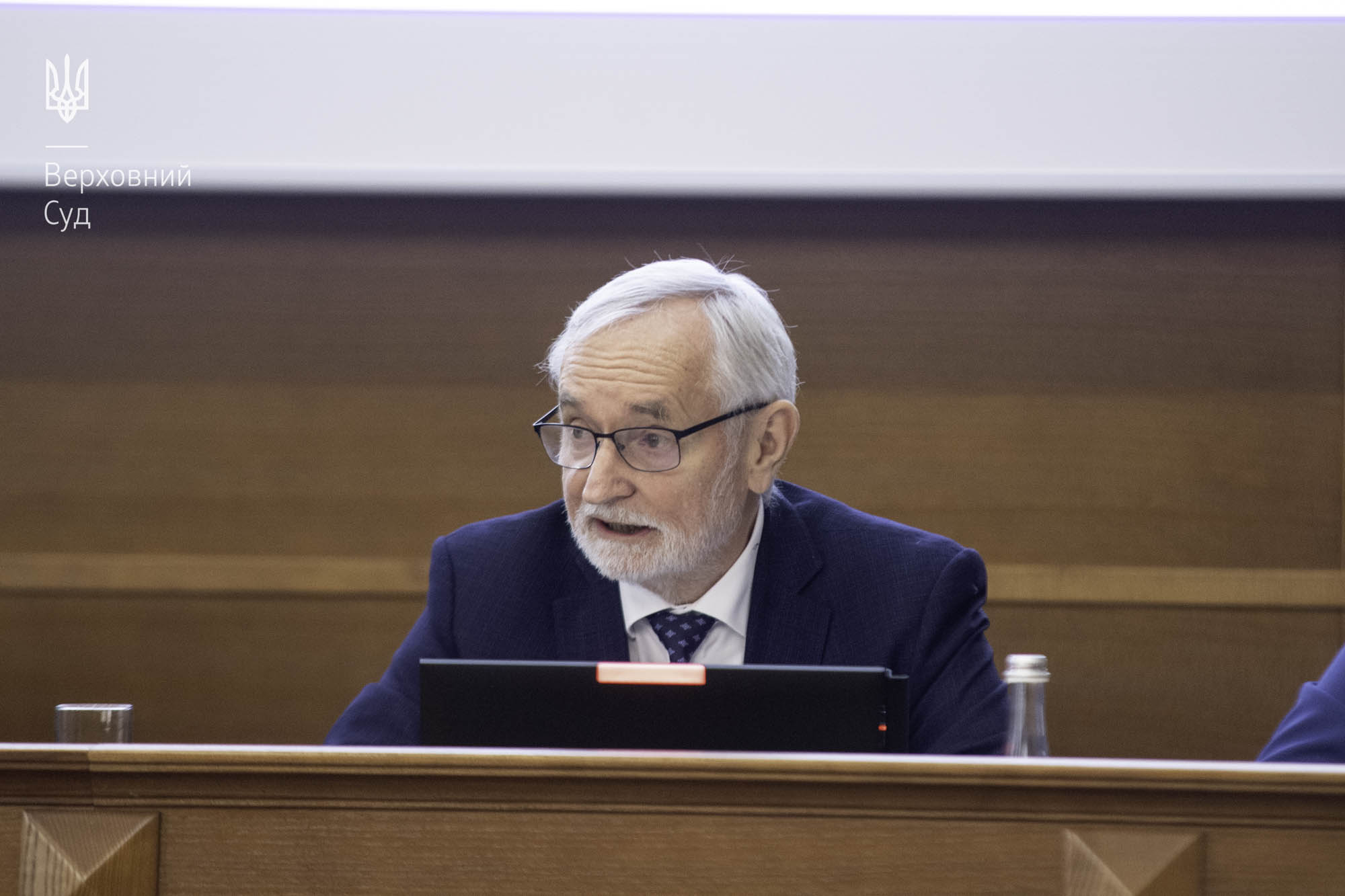
Petr Mareš, Special Representative of the OSCE Chairmanship and OSCE Project Co-ordinator in Ukraine, noted that the Warsaw Recommendations are the result of many years of work by the OSCE and are designed to strengthen the independence of judges in Ukraine and throughout the region. The Kyiv Recommendations were adopted in 2010, but since then new challenges have emerged. The Warsaw Recommendations expand on the foundations laid by the Kyiv Recommendations and introduce additional principles to address contemporary threats to judicial independence. The Warsaw Principles place greater emphasis on the ethical principles and integrity of judges, recognising that public trust in the judiciary also depends on the behaviour of judges themselves. The Warsaw Principles also systematise the disciplinary liability of judges in more detail, and guarantee that sanctions against judges must be proportionate, transparent and fair. Petr Mareš also spoke about new forms of pressure on judges, including digital harassment and attacks on social media, which are becoming more widespread and require additional guarantees for judges.

Konstantine Vardzelashvili, Head of the Democratisation Department of the OSCE Office for Democratic Institutions and Human Rights, noted that the Warsaw Principles are an important precondition for a democratic system based on the greatest value, the human person. The content of the document is not new to the Ukrainian community, as many of its recommendations have been discussed in Ukraine. Moreover, the document reflects the Ukrainian experience of justice reform. Konstantine Vardzelashvili also assured that ODIHR is a committed partner of Ukraine in its efforts to establish the rule of law in these difficult times. He noted that the Office will support our country to ensure a properly accountable and strong judiciary in Ukraine.
.jpg)
According to the moderator of the event, Supreme Court Judge of the Commercial Cassation Court, Chairman of the Committee of the Council of Judges of Ukraine on Ethics, Prevention of Corruption and Settlement of Conflicts of Interest, Deputy Representative of Ukraine to the CCJE, Yehor Krasnov, the Consultative Council of European Judges constantly returns to certain issues in view of the development of public relations, as the first CCJE opinion on disciplinary liability of judges was adopted in 2002. Now, the CCJE has prepared a new Opinion No. 27 on the disciplinary liability of judges.

As part of the Opinion's presentation, Judge of the Constitutional Court of Ukraine, Representative of Ukraine to the CCJE Viktor Horodovenko noted that although the provisions of the CCJE Opinions are soft law, Ukrainian courts often refer to them in their decisions. The CCU judge also said that Ukraine began to apply Opinion No. 27 immediately after its adoption by the CCJE.
Speaking about the grounds for disciplinary liability, Viktor Horodovenko noted that they have their own peculiarities in different countries (in particular, regarding the private conduct of judges) due to cultural diversity, which affects public expectations of judges' behaviour. For example, while in one country judges can express politically controversial opinions on social media, in another country they cannot do so. At the same time, the CCJE warns against vague provisions on grounds such as ‘breach of oath’ or ‘unethical conduct’, which are subject to overly broad interpretation and abuse, which could be dangerous for the independence of judges.
As stated in the introduction to Opinion No. 27, judicial accountability is closely linked to judicial independence. If judicial accountability is not clearly and adequately regulated, judicial independence is undermined.
Judicial accountability has become a topic of great concern in recent years. Several judgments of European courts have found that the executive has used disciplinary measures to silence or remove judges who have ruled against it.

The purpose of this Opinion is to take stock of all the developments since Opinion No. 3 (2002), to assess, analyse and develop standards of disciplinary liability of judges and to consider their impact on judicial independence. It contains a set of basic principles and recommendations applicable to all Member States and is intended to address situations where the independence and impartiality of judges may be at risk.
The Opinion addresses the following issues:
The Opinion does not address civil or criminal liability of judges.
In addition, the CCJE noted that although the Opinion does not address lustration, this issue should not be ignored. Lustration should not be used as a substitute for disciplinary measures. Nor should it be used to fight corruption. However, such a check may be permissible as an extraordinary one-off procedure in the transition from authoritarian to democratic rule of law.
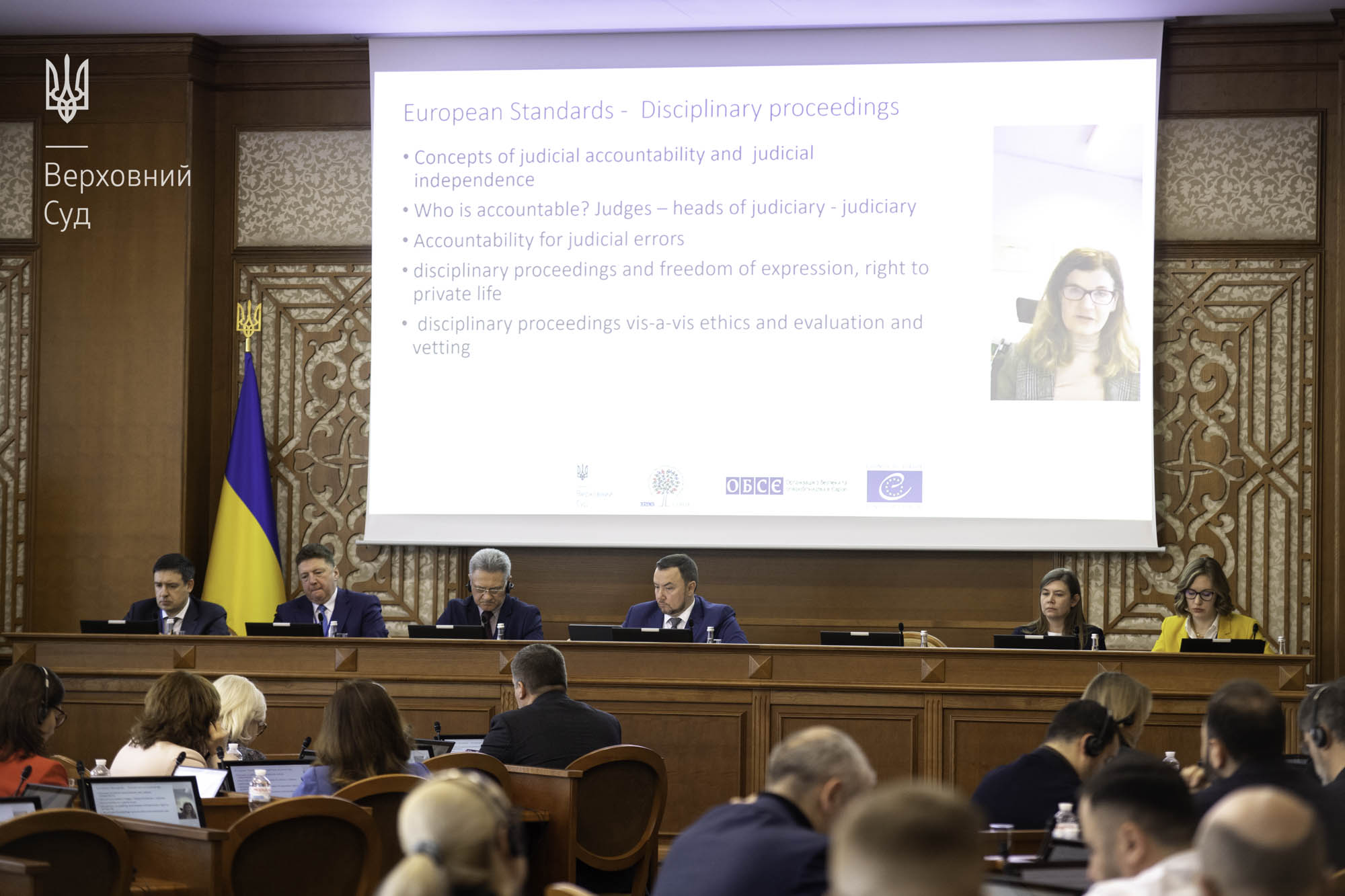
The official Ukrainian translation of the OSCE Office for Democratic Institutions and Human Rights Recommendations on the Judicial Independence and Accountability (Warsaw Recommendations) was presented at the roundtable by Iryna Ivankiv, Rule of Law Adviser at the OSCE Office for Democratic Institutions and Human Rights, Edith Zeller, President of the Association of European Administrative Judges (2014-2023), Judge of the Vienna Administrative Court, and Carolyn Hammer, Rule of Law Adviser.
During the presentation, it was noted that the Warsaw Recommendations were developed as a continuation and extension of the Kyiv Recommendations on the Independence of the Judiciary in Eastern Europe, the South Caucasus and Central Asia, published in 2010. The Warsaw Recommendations reflected new approaches to judicial independence, judicial accountability, the functioning of disciplinary bodies, freedom of expression and freedom of association, and issues of equality and non-discrimination.
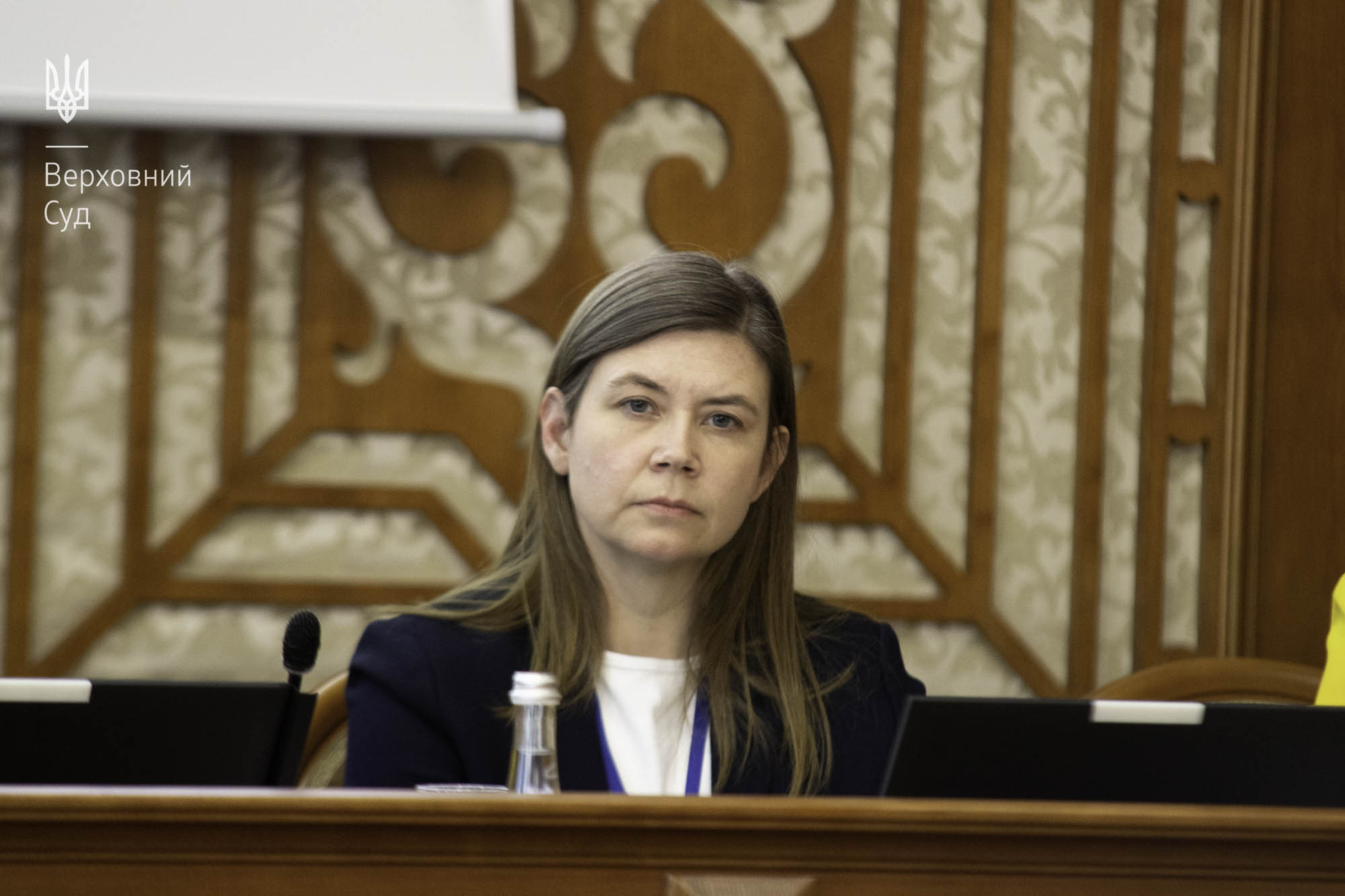
The OSCE recommendations on the judicial independence and accountability bring together interdependent yet distinct elements of the rule of law: judicial independence and accountability. The challenge is to strike a balance that ensures that judges have the freedom to make impartial decisions while remaining accountable to the law and the public. Both the Warsaw and Kyiv Recommendations provide advice on how to achieve this balance.
Edith Zeller shared her thoughts on the disciplinary responsibility of judges, the prevention of its abuse and the correlation between the principle of judicial accountability and judicial independence, while Carolyn Hammer spoke about the role of the Ukrainian legal community in shaping the Warsaw Recommendations and highlighted the issues related to the implementation of the Recommendations in the context of Ukraine.
You can watch the online broadcast of the roundtable on the Supreme Court's YouTube channel - https://www.youtube.com/watch?v=O_GbQDHpbPI.
The CCJE Opinion No. 27 (2024) on the Disciplinary Liability of Judges and the OSCE Recommendations on the Judicial Independence and Accountability (Warsaw Recommendations) are available at the following links:
CCJE Opinion No. 27 (2024) on the Disciplinary Liability of Judges - https://oqg-primary-prod-content.s3.us-east-1.amazonaws.com/uploads/pdf/1741782039986_67d17c0e27455.pdf;
OSCE Recommendations on the Judicial Independence and Accountability (Warsaw Recommendations) – https://oqg-primary-prod-content.s3.us-east-1.amazonaws.com/uploads/pdf/1741781355300_67d1794d5c404.pdf.